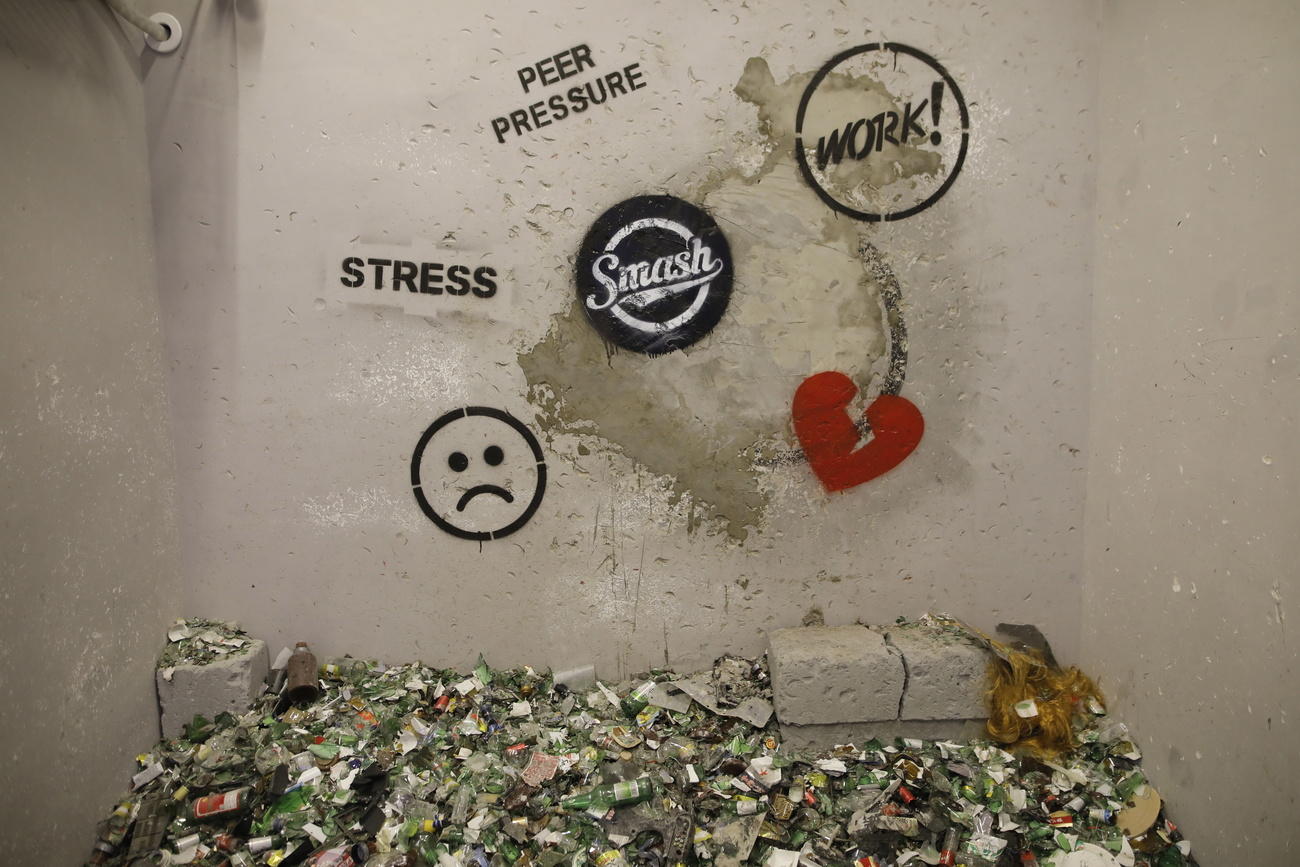
Coronavirus confinement leaves most Swiss stressed

The partial confinement measures introduced to combat the coronavirus in Switzerland has left one in two people feeling more stressed than before, according to a survey conducted by the University of Basel. One in four participants felt less stressed and the remainder were unaffected.
These preliminary results of the Swiss Corona Stress Study are based on the responses of more than 10,000 people across Switzerland during the period of April 6 to 8 April, three weeks after lockdown measures were introduced by the government.
Heightened stress levels are attributed to changes in work or school, as well as restricted social life or childcare, according to the survey. Depressive symptoms became more acute for 57% of participants. The frequency of severe depressive symptoms jumped to 9.1% during semi-confinement compared to 3.4% before the virus broke out in the Alpine nation.
Surprisingly, 26% of those surveyed felt less stressed than before the crisis, according to the authors. Another quarter (24.4%) said they had felt no difference. These results cut across differences in gender, age, belief and education.
Researchers credited increased physical activity and new hobbies or projects for helping people keep stress level downs. Limited consumption of information on the coronavirus also appeared to have a positive effect.
The anonymous online surveyExternal link is still underway to investigate how the loosening of confinement affects psychological well-being.

More
Coronavirus: the situation in Switzerland

In compliance with the JTI standards
More: SWI swissinfo.ch certified by the Journalism Trust Initiative






























You can find an overview of ongoing debates with our journalists here . Please join us!
If you want to start a conversation about a topic raised in this article or want to report factual errors, email us at english@swissinfo.ch.